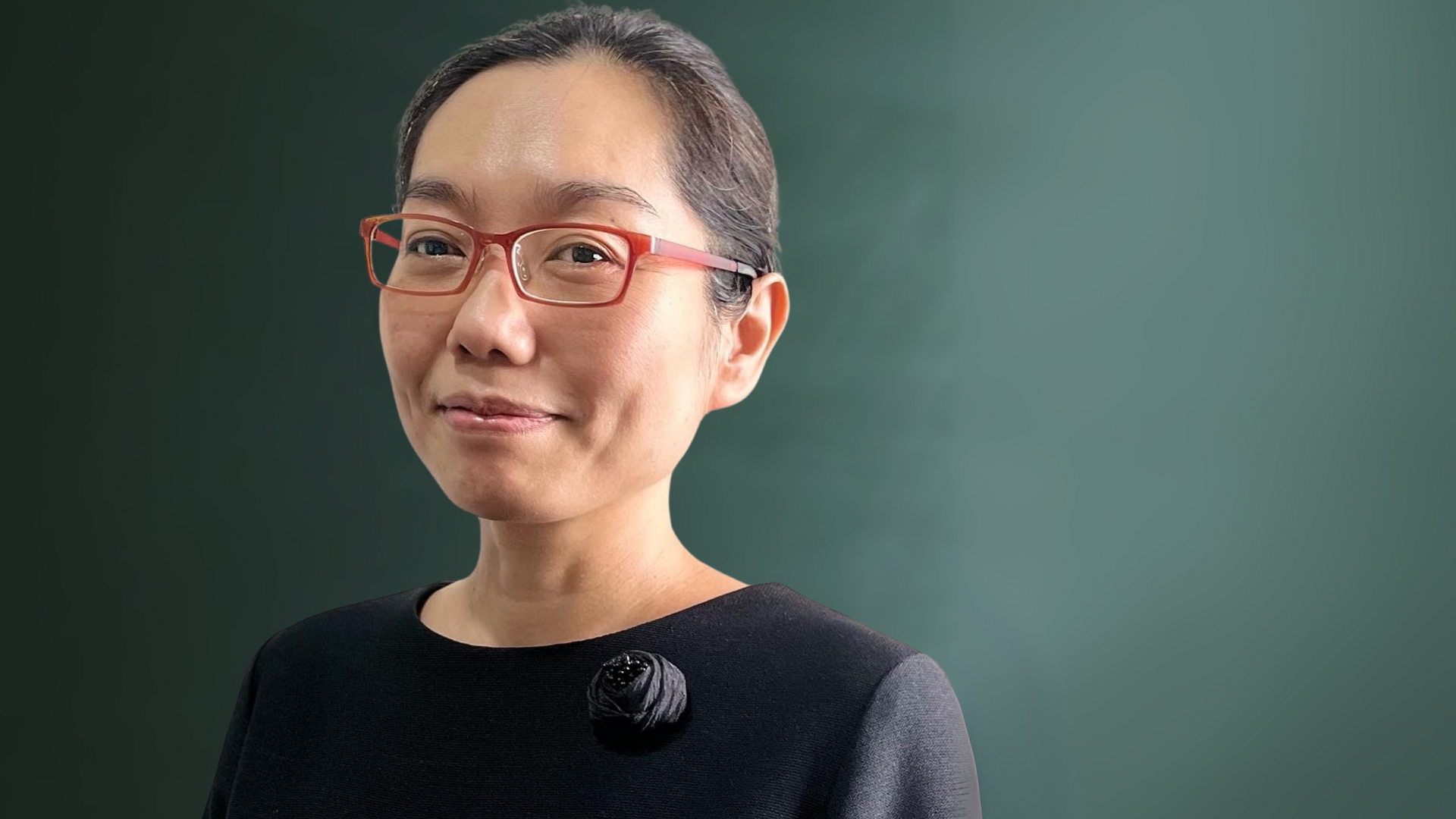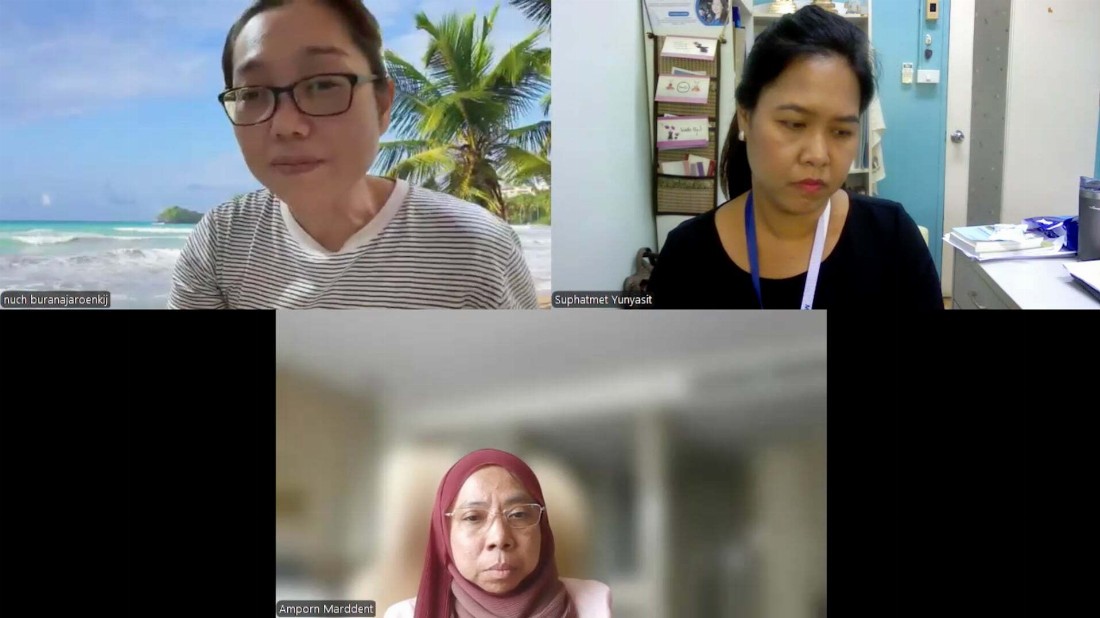thailand - mitigation
Assist. Prof. Dr. Duanghathai Buranacharoenkij

- Actor/Organisation
- Assist. Prof. Dr. Duanghathai Buranacharoenkij / The Asian Institute of Technology
- Current Title/Designation
- Lecturer, The Asian Institute of Technology
- Expertise/Focus Area
- Gender equality, Women's participation in the peace process, Thailand's National Action Plan on Women's Peace and Security
- Date of Interview/Research
- 26 August 2024
- Location of Interview
- Zoom Application
- Diplomacy Track
- 3
Starting Point
Dr. Duanghathai joined the Research Center for Peacebuilding (RCP), Mahidol University in 2005. Prior to working with Mahidol University, she had worked with SEM – Spirit in Education Movement, an organisation with a focus on the enhancement of spiritual learning for social change for about 7 years. In 2011 when RCP was merged with CHRSD and became the Institute of Human Rights and Peace Studies (IHRP) 2011, she worked on several projects for conflict transformation in the southernmost provinces alongside Dr. Gothom Arya, who served as the first director of RCP, and the late Dr. Parichart Suwannabhubbha, the first director of IHRP. Dr. Duanghathai received her Ph.D in Gender and Development Studies from the Asian Institute of Technology in 2016. She has conducted research related mostly on, but not limited to, women in conflict and gender perspectives in conflict transformation and peacebuilding. The geographical scope of her research spans over Thailand and some other neighboring countries like Myanmar.
Dr. Duanghathai has also served as a facilitator for both intra- and interreligious dialogues designed to transform conflict and build peace in the three southernmost provinces. She was the project leader of the project called ‘Weaving Peace Together’ from 2018-2021. The project started in 2014 with support from ETH Zurich and the Swiss Ministry of Foreign Affairs. As one of the academicians working substantively on the issue of women empowerment and the Women, Peace and Security agenda in particular, Dr. Duanghathai was appointed by the Ministry for Social Development and Human Security in 2023 as a committee member for the drafting of the National Action Plan on Women, Peace, and Security.
Over the past 20 years of her work in the peacebuilding and conflict transformation field, Dr. Duanghathai’s key working principle is aligned greatly with the conflict transformation principle. “I learned that in working for peace we need to be willing to compromise. Most of the time the success in conflict transformation lies in the people’s ability to sacrifice something for another thing deemed more important for them. It is crucial to bear in mind that we cannot have it all. Living together peacefully requires us to make sacrifices and envisage something bigger than our own gain,” said Dr. Duanghathai.
Peace Journey
Working under IHRP, Dr. Duanghathai has contributed a lot in the area of peace processes and peacebuilding. The recognition IHRP received as one of the leading institutions that use dialogue for conflict transformation in the southernmost region can be derived from the great works of Dr. Duanghathai. As a trained dialogue facilitator and a Non-Violence Communication (NVC) expert, she and her team at IHRP have organised a number of intra-Buddhist and Buddhist-Muslim dialogues since 2015 in the south. Their intra-Buddhist dialogues were designed to promote better understanding of the conflict and solidarity among the Buddhists of the three southernmost provinces. The interreligious dialogues also served as vital platforms for the Thai-Buddhists and Malay-Muslims of different backgrounds, political ideologies, and views on conflict transformation to interact meaningfully and build trust.
As these dialogues were also tied with capacity-building activities, the participants gained a lot of knowledge and skills necessary for them to engage in conflict constructively and, accordingly, become better agents for change. In this regard, it is not an overstatement to say that Dr. Duanghathai has contributed greatly to the development of Track 2 and 3 peace processes by enhancing the capacity for peace of local actors, connecting them with their counterparts and creating positive ambient for the people to work together for peace at the community level.
Her roles in the development of the WPS agenda at the national level started in 2016 when she was appointed as one of the members of a sub-committee on “Women, Peace, and Safety-Security Promotion” by the Department of Women’s Affairs and Family Development (WAFD), Ministry of Social Development and Human Security. With this appointment she has participated actively in the drafting of “Measures and Guidelines on Women and the Promotion of Peace and Security” and, later, in the development of Thailand’s National Action Plan on WPS. Adopting this crucial role, she has the opportunity to help the Ministry in its effort to raise awareness on WPS not only among Thai women holding leadership positions but also among various groups of stakeholders and to the general public. Dr. Duanghathai also engages with international organisations like UN Women, Friedrich Ebert Stiftung and the Ottawa Dialogue center.
Success Stories
When asked about her greatest achievement and success stories, Dr. Duanghathai mentioned 3 occasions/conflict scenarios in which her role as a dialogue facilitator contributed to positive outcomes in terms of the improvement in the relationship of the people. Those three scenarios are 1) conflict over fishing tools and styles of fishery in Dato, Pattani; 2) conflict regarding the wearing of hijab at the Pattani Kindergarten School; and 3) her engagement with the Buddhist hardliners from 2017-present.
For the first occasion, Dr. Duanghathai and some colleagues from IHRP organised dialogue sessions between two groups of Malay Muslim fishermen who, because of their conflict over fishing tools and strong competition, refused to speak to one another for a decade. The dialogues served as an open and safe space for the people to communicate and find amicable ways to coexist and share their livelihood. “It makes me feel so happy to see these fishermen turn to one another and start to seek proper solutions for the conflict after our dialogue,” said Dr. Duanghathai.
In the case of the Pattani Kindergarten School, Dr. Duanghathai and the IHRP team organised a series of intra and intergroup dialogues. It started with a session engaging the Buddhist Parent-Teacher Association of the school. In the session, she gained an insight into the Buddhists’ perception and understanding of the conflict, their stand, and limitations. The intergroup dialogues that followed provided opportunities for all stakeholders, which broadly fell into two sides: the Muslim parents and the school, to learn from one another and to understand that both parties harbored no ill will for each other. As it is a delicate and sensitive issue, a dialogue. The facilitator needs to look at both the content and the context as well as best practices from Thailand and beyond to propose a possible solution.
For the last scenario regarding the Buddhist hardliners of the south, Dr. Duanghathai regards it as one of the most challenging tasks she has ever done. In the southernmost region, the Buddhists are a minority group and often they feel neglected and sidelined by the state authorities and the Malay-Muslim community. As the statistics show, the Buddhists, though fewer in number as compared to the Malay-Muslim population, constitute the largest number of casualties in the violent attacks for the past 20 years. The feeling of being the prime target of violence has driven some Buddhists to resort to non-peaceful means as a way to protect their lives and communities. These Buddhists are who we call the ‘hardliners. These hardliners usually bear negative perceptions of the Malay-Muslims, refuse to engage with them, and treat them with contempt. Dr. Duanghathai reached out to them and tried to convince them to look at the Malay Muslims from different angles. It took years for her to change the hardliner’s attitude and perception. But once the change manifested, it led to so many positive outcomes and the improvement of their relationship.
Because of her tireless dedication to peacebuilding work for the Unrest, in 2022, Dr. Duanghathai received the ‘Outstanding Woman Award in Advancing the Cause of Peace’ from the Ministry of Social Development and Human Security. This award has made her one of the leading female peacebuilders of Thailand.
-
Implementing AgencyAWPR Thailand
-
Lead ResearcherAmporn Marddent
-
Co-Researcher/Research Assistant(s)Suphatmet Yunyasit (co-researcher), Wilasinie Sopaphol and Fatin Jamjuree (research assistants)
-
Date ResearchJune 2024-November 2024


